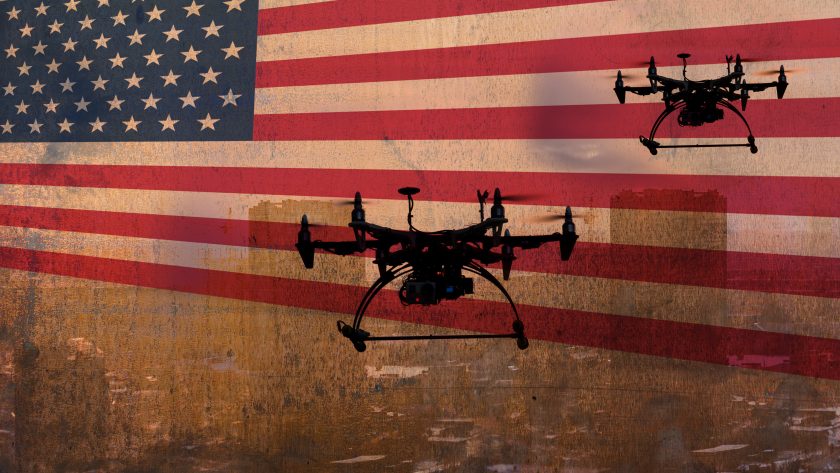The United States Chamber of Commerce has submitted a statement for the record for today’s Senate Judiciary Committee’s hearing titled “Defending Against Drones: Setting Safeguards for Counter Unmanned Aircraft Systems Authorities.”
The Chamber starts by saying that drones provide substantial economic, social, and national security benefits to the United States, then warns that the misuse and illicit use of drones presents substantial public safety, national security and economic concerns.
“These concerns include endangering the flying public, disrupting major sporting and entertainment events, enabling criminal and terrorism threats to public safety, and industrial espionage activities towards our most advanced critical infrastructure facilities,” the statement reads. “These risks are not hypothetical, given the number of unauthorised drone intrusions, close calls, and use of drones globally for malicious purposes.”
Four federal agencies currently have the legal authority to use counter-drone detection and mitigation technologies to protect certain sensitive facilities and operations. But the Chamber believes that those federal agencies do not have sufficient resources and adequate legal authorities to adequately protect the full scope of sensitive facilities and operations affected by illicit drone operations.
“Congress can remedy this issue by responsibly expanding detection and mitigation authorities to other relevant federal government agencies and functions that currently do not possess these authorities, detection authorities for private sector entities, and limited mitigation authority for state and local enforcement through a pilot programme. Expanding the aperture of entities that possess counter-drone authorities conserves limited federal resources and empowers federal agencies to prioritize protecting the most sensitive assets and operations.
“We recognise the complexities presented by employing counter-drone technologies, and support placing reasonable and tailored guardrails on expanded counter-drone use to address important policy goals including protecting privacy and civil rights and liberties, ensuring aviation safety, addressing spectrum interference, continuing federal oversight of the national airspace, and allowing lawful commercial activity. However, policymakers should ensure that any counter-drone framework minimises red tape for law enforcement and the private sector while also being practical to implement. Otherwise, the benefits of expanded detection and mitigation authorities will not be realised.”
The Chamber is calling for a “tailored, comprehensive counter-drone framework” to address the challenges and enhance the safety of citizens and infrastructure against drone threats.
The hearing can be followed at the US Senate Committee on the Judiciary.
For more information
Image: Shutterstock




